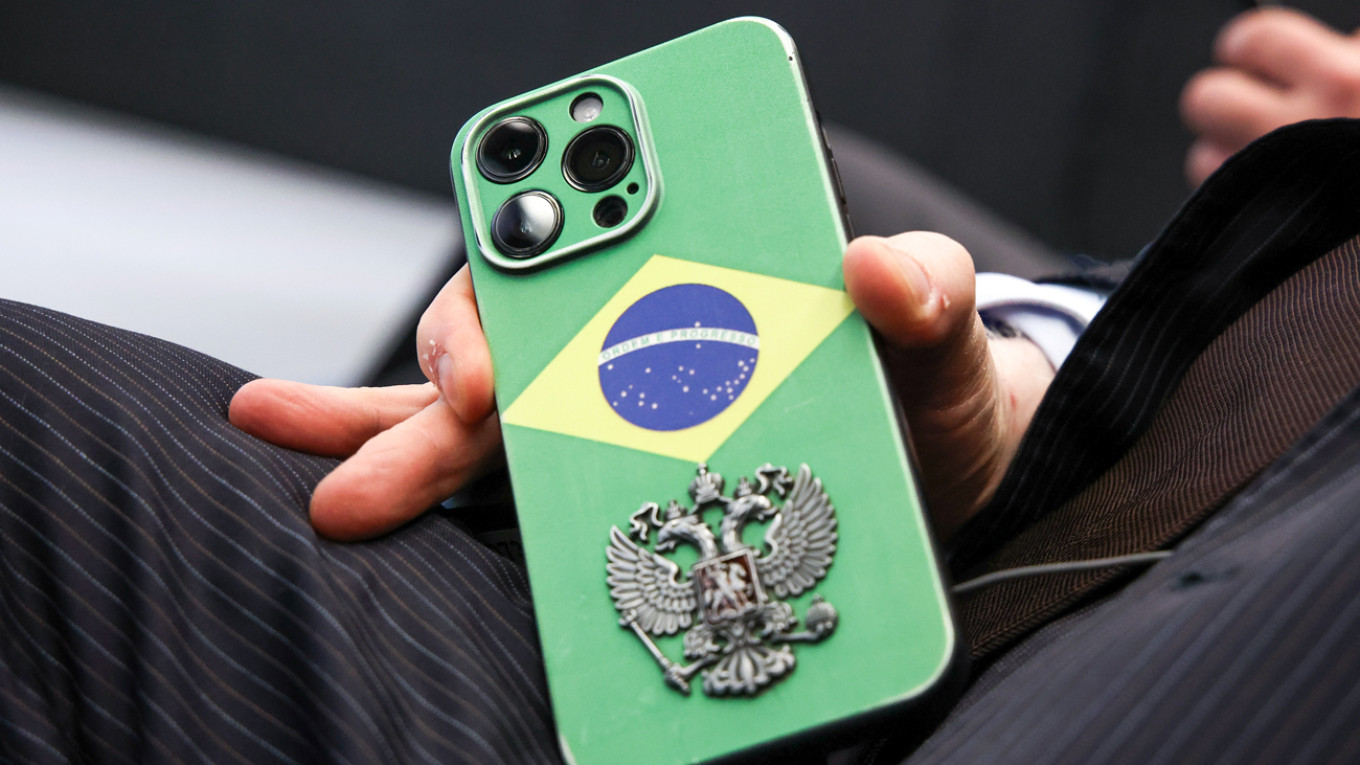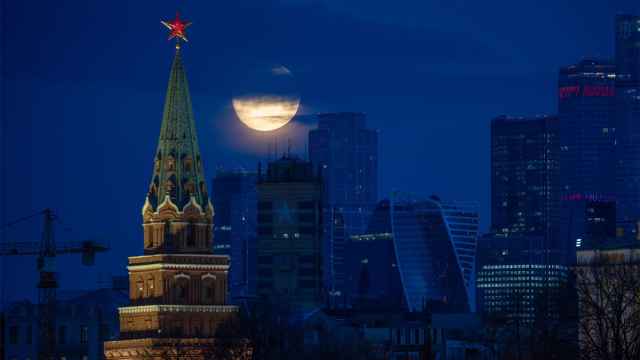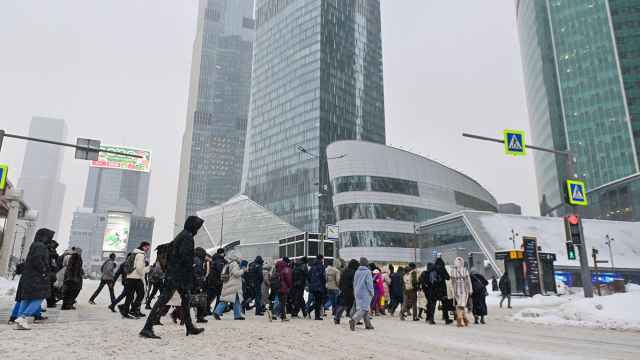Despite the Russian elites' rhetoric about challenging Western hegemony, two recent indicators tell a less comfortable story for the Kremlin regarding its ability to convince neutral countries of the stability of its economy.
First, there was an absence of high-profile guests at the St. Petersburg International Economic Forum (SPIEF), which was even snubbed by some top Russian business executives.
Once well-attended by top foreign leaders and heads of major multilateral organizations like the IMF, this year's forum was dominated by abstract discussions about a multipolar world and only one head of state, the president of Indonesia.
Second, the latest statistics from the UN Conference on Trade and Development (UNCTAD) showed that the Russian economy attracted $3.35 billion of foreign direct investment (FDI) in 2024, a 91% drop compared to the pre-war year of 2021 and the lowest level since 2001.
Meanwhile, Russian FDI stock, or all accumulated investment originating from abroad, decreased by 57% from 2022 to 2024, amounting to $216 billion.
The data shows that there has been no boom of investments from the Global South after the exodus of Western firms from Russia.
Take China. A study by the Bank of Finland Institute for Emerging Economies estimates that Russia’s share of China’s cumulative outward FDI decreased from approximately 1% from 2015 to 2020 to 0.3% from 2021 to 2023. Given that Chinese overall FDI stock abroad stood at about $2.96 trillion in 2023, the country’s cumulative FDI in Russia stands at around $8.9 billion.
India’s FDI stock in Russia is similarly small, estimated at $16 billion as of the end of 2023.
All of this pales in comparison to the scale of Western investment in Russia before the war. In 2021, the EU held 255 billion euros in FDI stock in the country. U.S. investment projections ranged from $12.3 billion to $39.1 billion, depending on the methodology used.
The data tells a story that is echoed in the news cycle as Moscow struggles to find buyers for assets left behind by Western firms and to persuade China to invest in new factories, particularly in the automotive sector.
There are three reasons that help explain why non-Western countries, particularly China, are reluctant to invest in Russia.
The first and most obvious one is the war in Ukraine.
Unlike trade, where immediate profits for both parties take precedence, investments require certainty about the future.
“The war and resulting sanctions are a huge block on FDI flowing into Russia, as is the Kremlin’s response thereto with its widespread nationalization and seizure of assets,” Maximilian Hess, founder of Enmetena Advisory and a fellow at the Foreign Policy Research Institute, told The Moscow Times.
Hess said that China may eventually look to invest in Russia’s distressed assets — companies or capital devalued by the war — but such investments are unlikely to involve major projects.
“Beijing certainly enjoys its relationship with Moscow but sees it as an extractive one to milk for the maximum possible benefit and in which it hedges its risk, hence the slow walking for more than three years now of Power of Siberia 2,” Hess said.
While President Vladimir Putin hoped the Power of Siberia 2 gas pipeline to China would offset Russia's loss of market share in Europe following the invasion of Ukraine, the project has been plagued by delays and uncertainty.
The second reason, which underlies the first, is the sheer inconvenience of dealing with Russia in terms of financial and payment systems.
Sanctions have isolated Russia from the global financial system, forcing it to increasingly rely on trade in national currencies with other countries and use intermediaries for transactions and capital transfers.
For instance, the ruble's share of Russia's payments for exports has increased from 14.3% in 2021 to 41.3% in 2024, and for imports from 28.1% to 43.2%.
No such shift has been observed on the global scale, as dollars and euros account for 72% of international payments, according to the latest data provided by SWIFT for May.
All of this complicates payments to and from Russia, making shifts in capital too costly.
It is true that China and India may have reservations about the West, especially given Donald Trump’s protectionist policies. But they are certainly not willing to forgo the advantages of the global financial system, nor would they want to risk their wellbeing for the sake of Russia’s quest of standing up to the West.
The third reason is regulations.
Before the war, Russia could borrow Western euros and dollars, which are freely convertible and stable currencies. As of 2022, some 64% of Russia’s foreign debt was denominated in dollars and euros.
Now, avenues for borrowing in foreign currencies are closed due to sanctions, while China’s regulations prevent the Russian government from issuing yuan-denominated bonds.
The Chinese market is tightly regulated, and the government does not want to do business with companies that have been sanctioned by the West.
In 2024, Russian Deputy Finance Minister Ivan Chebeskov announced that negotiations between Moscow and Beijing regarding the Russian government's issuance of yuan-denominated bonds had reached an impasse due to disagreements with Chinese regulators.
Though Russia could issue Panda bonds, which are sold on the Chinese domestic market and require a permit to transfer funds out of the country, Moscow would prefer to use its own infrastructure to issue yuan-denominated bonds, Chebeskov said.
There have been no updates on the issue since.
Similarly, whereas Western private funds often prefer high-risk, high-reward investments, Chinese investors are more risk-averse and bound by red tape.
Significant investments abroad or purchases of foreign debt require approval from Chinese government bodies, exacerbating an already cumbersome process. Additionally, Asian markets are flooded with domestic ventures that generate high returns, so there is less of a pressing need to turn to Russia.
For example, the Chinese government's crackdown on risky financial activities was the reason why a high-profile deal in 2017 between Russia and China collapsed.
The $9.1 billion deal, which would have seen energy conglomerate CEFC China Energy acquire a 14.16% stake in the Russian oil giant Rosneft, was ultimately canceled due to CEFC’s financial troubles and bribery allegations against its chairman, Ye Jianming.
A Message from The Moscow Times:
Dear readers,
We are facing unprecedented challenges. Russia's Prosecutor General's Office has designated The Moscow Times as an "undesirable" organization, criminalizing our work and putting our staff at risk of prosecution. This follows our earlier unjust labeling as a "foreign agent."
These actions are direct attempts to silence independent journalism in Russia. The authorities claim our work "discredits the decisions of the Russian leadership." We see things differently: we strive to provide accurate, unbiased reporting on Russia.
We, the journalists of The Moscow Times, refuse to be silenced. But to continue our work, we need your help.
Your support, no matter how small, makes a world of difference. If you can, please support us monthly starting from just $2. It's quick to set up, and every contribution makes a significant impact.
By supporting The Moscow Times, you're defending open, independent journalism in the face of repression. Thank you for standing with us.
Remind me later.







